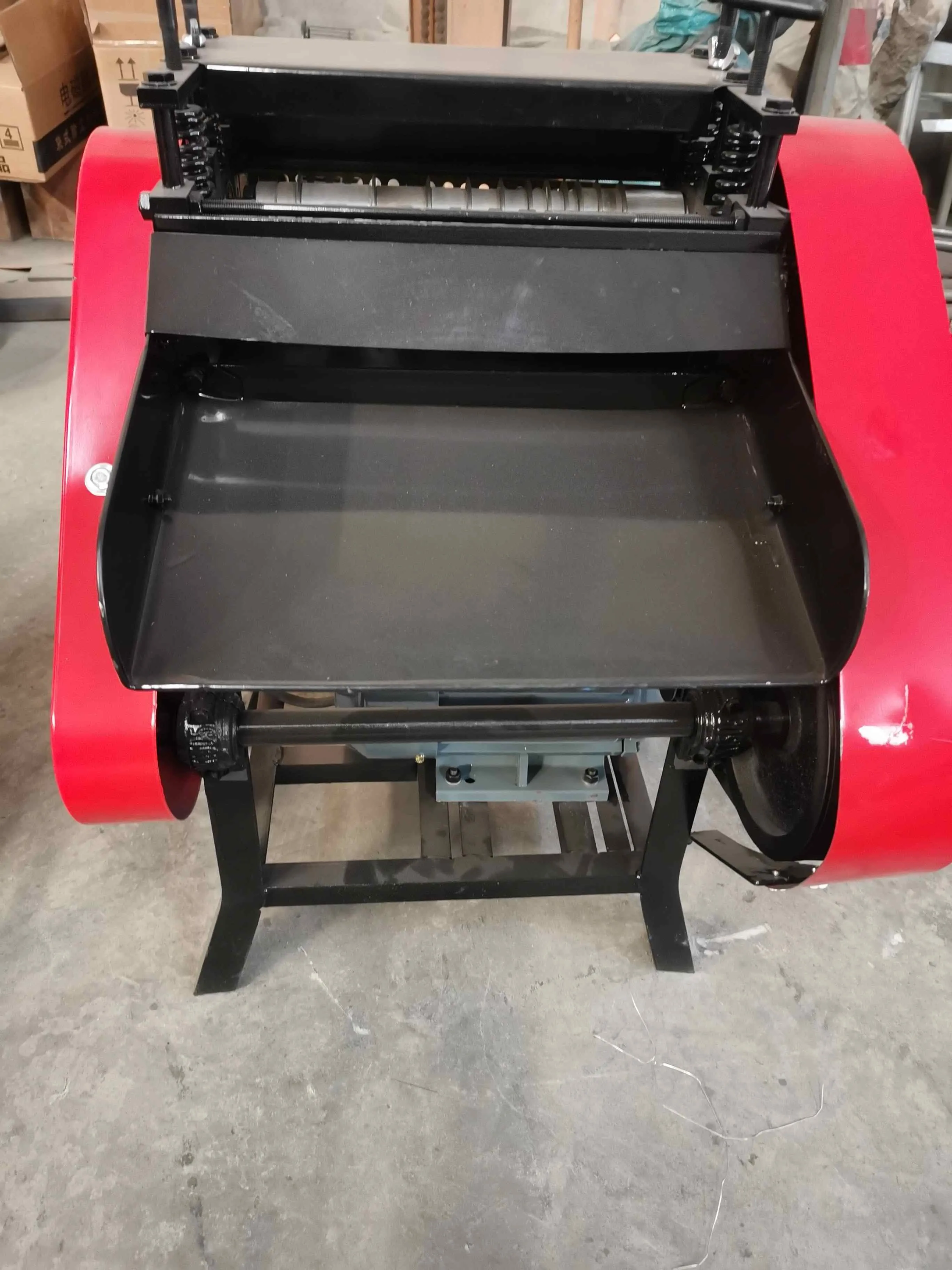

វិច្ឆិកា . 17, 2024 06:26 Back to list
The Importance of Electronic Scrap Shredders in Modern Recycling Efforts
In an age characterized by rapid technological advancement and increased reliance on electronic devices, the issue of electronic waste, often termed e-waste, has surged to the forefront of environmental concern. Electronic scrap shredders have emerged as crucial equipment in the recycling industry, offering an effective solution to manage e-waste in an environmentally friendly manner. This article delves into the significance of electronic scrap shredders, their operational processes, and their impact on sustainability.
Understanding Electronic Scrap Shredders
Electronic scrap shredders are heavy-duty machines designed to break down electronic waste into smaller, manageable pieces. These devices can handle a diverse range of materials, including old computers, smartphones, televisions, and other electronic devices. The shredding process not only reduces the size of the waste, making transportation easier, but also facilitates the extraction of valuable materials like metals, plastics, and glass for recycling.
The shredding process typically involves multiple stages. Initially, the electronic scrap is fed into the shredder, where heavy blades rotate at high speeds to chop the materials into smaller fragments. These fragments are then further processed through magnetic separation, air classification, and other advanced technologies to isolate recoverable materials. This efficient system ensures that as much material as possible is recycled, minimizing the volume of waste that ends up in landfills.
Environmental Benefits of Electronic Scrap Shredders
The environmental benefits of electronic scrap shredders are profound. First and foremost, they significantly reduce the environmental impact of e-waste. Improper disposal of electronic waste can lead to toxic substances, such as lead, mercury, and cadmium, leaching into the soil and water, posing serious health risks to humans and wildlife. By ensuring these materials are processed and disposed of correctly, shredders play a vital role in protecting ecosystems.
Moreover, shredding electronic waste allows for the recovery of valuable resources. According to the United Nations, raw materials extracted from electronic waste could be worth billions. By recycling metals and other materials, we can decrease the need for new resource extraction, ultimately leading to lower carbon emissions and reduced energy consumption. This aligns with global sustainability goals and the movement towards a circular economy, where materials are reused, remanufactured, and recycled rather than discarded.

Economic Implications
The use of electronic scrap shredders also holds significant economic advantages. As the demand for recycled materials continues to rise, businesses that invest in e-waste shredding technology position themselves as leaders in sustainable practices. By participating in the e-waste recycling ecosystem, companies can reduce material costs, create new revenue streams from recovered materials, and enhance their corporate social responsibility initiatives.
Additionally, shredding facilities can create jobs within the community, contributing to local economies. From equipment maintenance to sorting and processing, a thriving recycling facility offers a variety of employment opportunities that support the local workforce.
Challenges and Future Directions
Despite their benefits, there are challenges associated with electronic scrap shredders. The initial investment can be substantial, and there is often a lack of awareness regarding proper e-waste disposal methods. Educational initiatives and government regulations can help mitigate these issues, encouraging more individuals and businesses to recycle their electronic waste responsibly.
Looking ahead, technological advancements will likely enhance the efficiency and effectiveness of electronic scrap shredders. Innovations in automation and artificial intelligence may streamline the sorting and shredding processes, further improving recovery rates and reducing operational costs.
Conclusion
Electronic scrap shredders represent a critical component of modern recycling efforts, addressing the growing challenge of electronic waste. By efficiently processing e-waste, these machines not only protect the environment but also promote a sustainable business model that benefits both the economy and society. As the world becomes increasingly dependent on technology, investing in e-waste management solutions like shredders is essential for a sustainable future.
Latest news
Troubleshooting Common Eddy Separator Problems
NewsJul.04,2025
The Role of Metal Recycling Plants in Circular Economy
NewsJul.04,2025
The Impact of Recycling Line Pickers on Waste Management Costs
NewsJul.04,2025
Safety Features Every Metal Shredder Should Have
NewsJul.04,2025
How Industrial Shredders Improve Waste Management Systems
NewsJul.04,2025
How Cable Granulators Contribute to Sustainable Recycling
NewsJul.04,2025